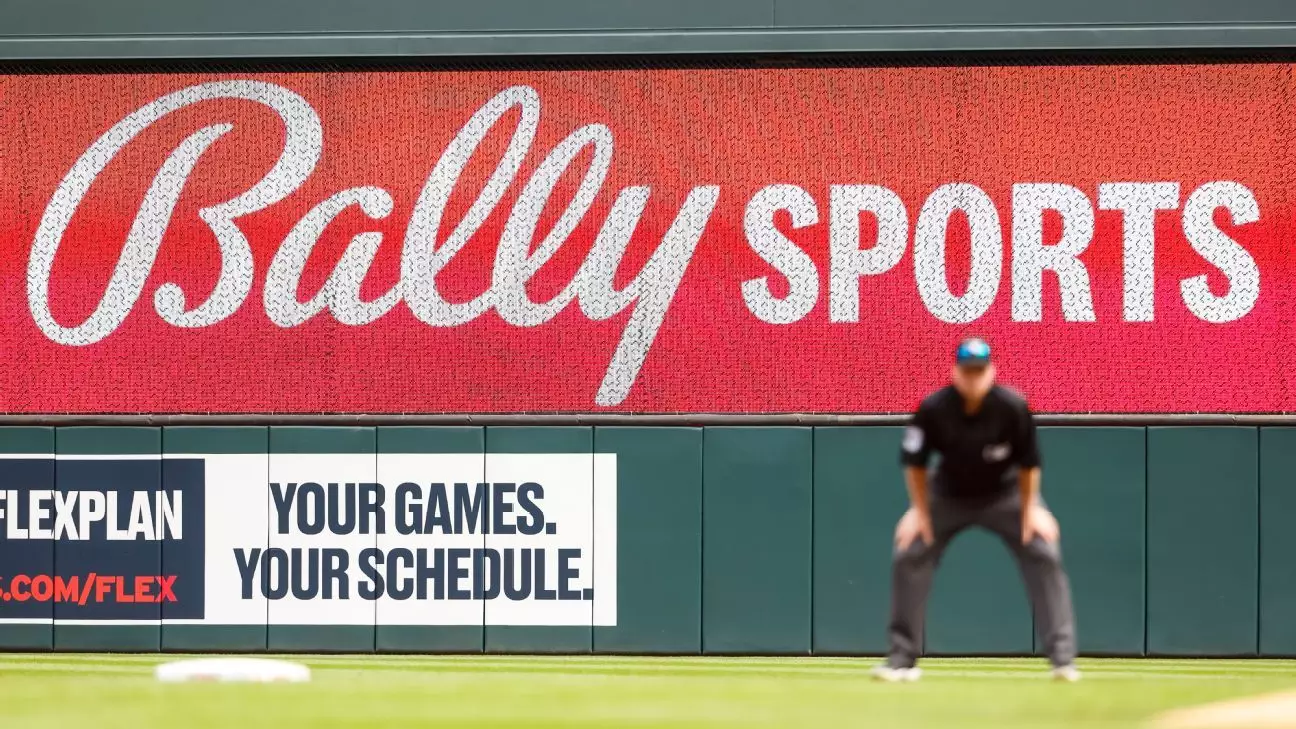In early May, Major League Baseball fans found themselves in a frustrating situation when the Bally Sports channels carried by Comcast suddenly went dark. The dispute arose after Comcast and Diamond Sports Group, the bankrupt operator of Bally’s, failed to reach an agreement on a new contract. Despite an initial six-month extension that was agreed upon in the fall, the two parties were unable to come to terms on a multiyear deal before the deadline, leading Comcast to pull the plug on the Bally Sports channels.
The blackout left fans of 12 MLB teams without access to their local games, including the Minnesota Twins, St. Louis Cardinals, and Atlanta Braves, among others. While Diamond Sports Group has secured deals with other major distributors like Charter and DirecTV, a contract with Comcast was crucial for the company’s emergence from bankruptcy. The blackout had varying degrees of impact depending on the market, with some regions affected more significantly than others.
Diamond Sports Group holds streaming rights for several teams, such as the Marlins, Rays, Royals, and Tigers, offering fans an alternative viewing option. However, local fans of the remaining eight teams who are Comcast subscribers are currently unable to watch games not picked up for national broadcast. MLB’s blackout restrictions prevent these games from being streamed on MLB.TV, creating frustration among fans who are unable to access their favorite teams’ games.
MLB faced challenges in lifting blackout restrictions for the affected teams, as it would have conflicted with their contracts with Diamond Sports Group. While some teams like the San Diego Padres and Arizona Diamondbacks had their blackouts lifted after failed deals, the majority of teams remained in the dark due to the ongoing dispute between Comcast and Bally Sports.
Comcast’s decision to place Bally Sports teams on a higher, more expensive tier was a point of contention in the negotiations. Industry sources revealed that Comcast’s desire for increased fees became a major obstacle in reaching a deal, ultimately leading to the blackout. Despite offering credits to customers for the inconvenience caused by the channel blackout, Comcast stood firm on its decision to discontinue carrying Bally Sports channels.
Call for Negotiations
In the midst of the dispute, representatives from Diamond Sports Group expressed disappointment in Comcast’s refusal to engage in substantive discussions. They emphasized the importance of reaching an agreement to restore broadcasts for fans and highlighted the mutually beneficial role that regional sports networks play in the media ecosystem. Comcast, on the other hand, maintained its stance on the matter, citing multiple declined offers from Diamond Sports Group as the reason for the channel blackout.
The conflict between Comcast and Bally Sports has left MLB fans in a state of uncertainty, with access to local games hanging in the balance. While both parties remain open to negotiations, the future of the broadcasting partnership remains unclear. The impact of the blackout serves as a reminder of the intricate relationships and power dynamics at play in the world of sports broadcasting.


Leave a Reply